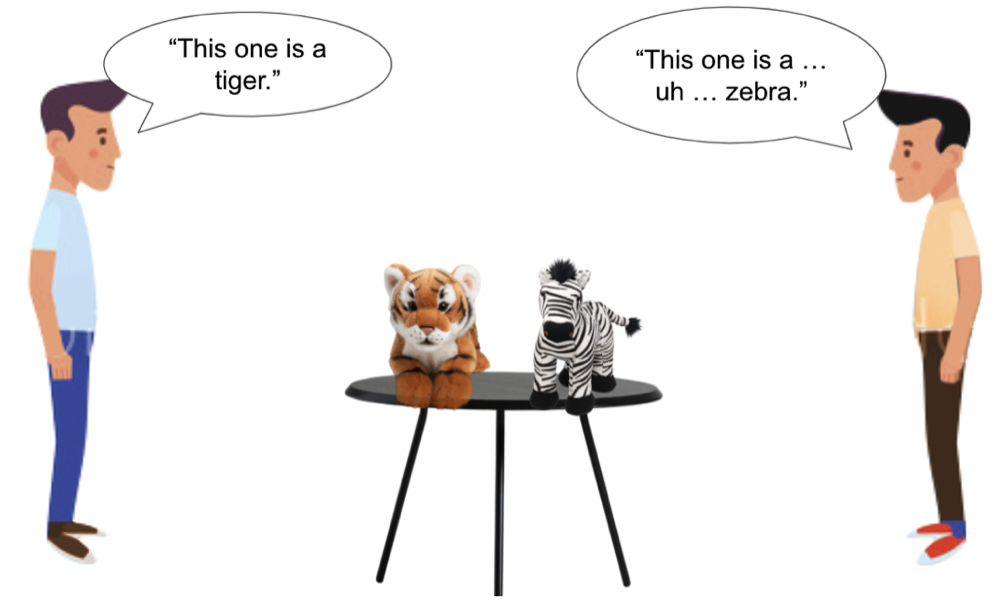Inferring Mental States from Disfluencies
Delays and disfluencies ("um") are a ubiquitous part of everyday conversation. Far from being meaningless noise, they can reveal rich information about what is happening inside a speaker’s mind. In this line of work, I examine how children (and adults) use disfluencies to infer a speaker’s mental states and figure out about how much someone knows, how confident they are, or what they truly believe. I argue that children’s reasoning about disfluency is not merely heuristic, but inferential: broad, flexible, and context-sensitive. Rather than applying a simple rule, children adaptively interpret these subtle cues depending on conversational context.
 In one series of studies, children as young as 4 inferred that disfluent speakers were less knowledgeable when making factual claims (even when accurate), but blocked this inference when speakers openly expressed ignorance. When discussing preferences, 6-year-olds inferred that disfluent speakers held weaker preferences, and flexibly generalized the meaning of disfluency across these different conversational contexts.
In one series of studies, children as young as 4 inferred that disfluent speakers were less knowledgeable when making factual claims (even when accurate), but blocked this inference when speakers openly expressed ignorance. When discussing preferences, 6-year-olds inferred that disfluent speakers held weaker preferences, and flexibly generalized the meaning of disfluency across these different conversational contexts. In one series of studies, children as young as 4 inferred that disfluent speakers were less knowledgeable when making factual claims (even when accurate), but blocked this inference when speakers openly expressed ignorance. When discussing preferences, 6-year-olds inferred that disfluent speakers held weaker preferences, and flexibly generalized the meaning of disfluency across these different conversational contexts.
In one series of studies, children as young as 4 inferred that disfluent speakers were less knowledgeable when making factual claims (even when accurate), but blocked this inference when speakers openly expressed ignorance. When discussing preferences, 6-year-olds inferred that disfluent speakers held weaker preferences, and flexibly generalized the meaning of disfluency across these different conversational contexts.